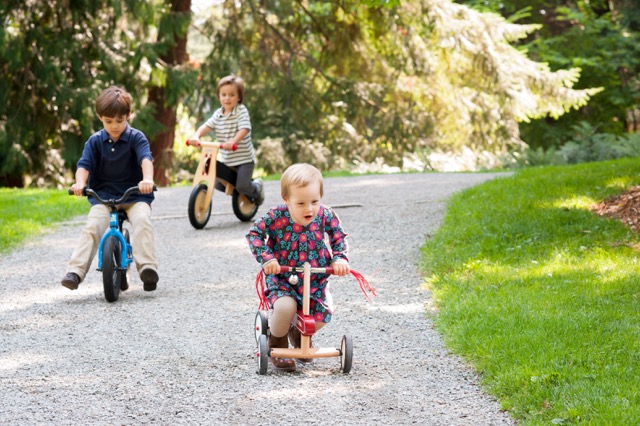Do you remember how much you wanted to learn to ride a bike as a kid? When my oldest boy was three, we decided to buy him a “balance bike” -- a small bike with no pedals that he could push with his little legs. They’re big in Europe and started making a splash in the US a few years back.
My son desperately wanted to learn to ride a bike. Like you and I, he wants to do bigger and better things. He's all boy and rode that balance bike all over the place. I let him be as adventurous as he wanted and you can imagine how much I would beam when he’d pick up speed and push the limits. We did the same for our two younger kids and my wife and I beamed with just as much pride watching them learn to ride.

When they each turned four we bought them a big kid bike, and I still remember their identical reactions when they first saw them. A look at me, a look at the bike, and then an expression that said, "Can I really do this?" Have you ever had that feeling?
Sure, they were nervous, but they'd learned a valuable lesson on their balance bikes. It was literally one push and off to the races for all three! Their confidence grew with every pedal until I could see the same pride in their eyes that beamed in mine.
So, what lesson did they learn?
Here's the secret: training wheels suck.
I never thought our kids took to bike riding so easily because they were more athletic than any other kid. However, the experience did amplify for me the deep belief that we all just want a chance to shine. To do more by taking control of “our bike”.
Communities with a strong company culture understand this valuable lesson about leadership and development. Training wheels suck. All they do is stall real progress. Give great people the autonomy to surprise you and let them be in control, not the bike. Isn’t that what we all want?
Train others by granting control, not by limiting it.
Watching my kids learn to ride without training wheels, I noticed:
- When they would wipe out, which was often, they never blamed the bike. Training wheels allow us to misplace blame on the bike (what we can't control) instead of our balance (what we can control).
- When they leaned too far to one side or the other, they immediately felt unbalanced. Training wheels take away that immediate feedback and in turn the opportunity to quickly correct our own behavior.
- When they were ready for more, although scared, they had the confidence to try. Without training wheels, they learned to rely on themselves. Their self-confidence grew leaps and bounds because they were doing it on their own (with just a little help from mom and dad to get them started).
I encourage you to go find a “balance bike” for someone you serve – they’ll surprise you. You’ll beam. All Hail the Underdog.
Interested in joining our training wheel-free community? Check out our internal job opportunities or get in touch with our recruiters.



Leave a comment